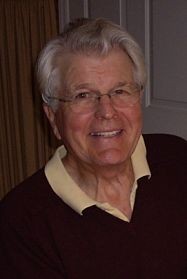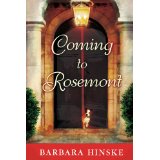Meet Barbara Hinske, Author of Coming To Rosemont — A Debut Novel
Somewhere in a crabby moment, I wrote that the self-publishing industry exists for those who work in it; namely, the printers, publicists, promoters, contest sponsors, etc. A horde awaits the arrival of every neophyte author into the arena, eager to capitalize on the writer’s aspirations, ignorance, and boundless belief in self. All of that is true, but I’d like to think that reputations of the careless, the incompetent, and the unscrupulous will eventually catch up with them, and they will be forced out of the industry.
I am reluctantly inclined to modify my opinion, hard-earned as it has been from personal experience. Writers, even if they never sell a single copy, benefit from the self-publishing industry in surprising ways, none of them being especially monetary. The industry brings them together in a virtual fraternity—a granfalloon. To illustrate: a wonderfully well-written review of my novel, Deadly Portfolio: A Killing in Hedge Funds, appeared one day on Amazon. Literate, I thought, and I was gratified to find the author of it gave my humble mystery five stars. Of course I needed to know who this person was, and it turns out, she too is an author. Her first book is Coming to Rosemont. I was intrigued, ordered the book and wrote to the author, Barbara Hinske. She agreed to let me cobble together an interview with her on my web site. But first, a little about Barbara:
Barbara Hinske, Author
Barbara is an established practicing attorney who inherited the fiction-writing gene from her father. She began her career as an industrial engineer, but found her true passion in the law. She has been married three times. Her second marriage produced two children—now grown. Tragedy stuck when her second husband died of cancer in 2006. She describers herself as being “lucky in love,” and indeed that must be the case, as she married her current husband in 2010 and inherited two stepchildren. The couple lives in Phoenix, Arizona and share their own Rosemont with their two adorable and spoiled dogs.
Barbara recently published her novel, Coming to Rosemont, which begins with forensic accountant Maggie Martin’s striving to recover her well-ordered life after it is shattered by her husband Paul’s untimely death and the discovery that he had been leading a double life as a bigamist. Dealing with the financial and emotional wreckage left in Paul’s wake, she learns that she inherited an estate known as Rosemont in the seemingly-serene Midwestern town of Westbury. She travels to see Rosemont, fully intending to sell the property. Once there, however, she is won over by the charm of the house and the town of Westbury and she realizes that it is the perfect place for her to fulfill her wish to get a fresh start in a quiet, solitary life She moves halfway across the country to make Rosemont her home. Before she can unpack her first box, she finds herself knee-deep in a battle against political corruption, where defeat and retreat are not an option. Still bearing the scars of betrayal, she is hopeful that her new home will help her find joy, romance and fulfillment.
What inspired you to write your first book?
I’ve wanted to be an author since I was a little girl; I wanted to be Jo in Little Women. Life gave me a push in this direction when I was seriously injured in an auto accident – including double vision — and the only activity I was capable of doing to relieve my boredom was sketch out my novel on a legal pad.
Coming to Rosemont is your first novel. Tell me a little about it.
Forensic accountant Maggie Martin survives the sudden death of her husband only to discover that he had been leading a double life. Struggling to recover from the trauma of his betrayal, she learns that she has inherited an estate known as Rosemont in a town of Westbury miles away in the Midwest.
Maggie travels to Westbury to arrange for the sale of the property and hopes to find answers to her all-consuming questions about her sham of a marriage; her sham of a life. To her surprise, she finds Rosemont and Westbury ideally suited to helping her start her life over again. Rather than sell the home, she decides to move into it. With a quiet, orderly–and distinctively solitary–life in mind, Maggie gets drawn into a crusade against political corruption in her new hometown.
How would you describe your writing style?
My style is spare, clear, and fast-paced. As a reader, I deplore long-winded descriptive sections. I loved the premise of The House at Tyneford, but the 3-page descriptions of birds along the heroine’s path almost killed me! I also want my readers to say that they feel like they know my characters. I’m an attorney and do a lot of technical writing – I don’t want my novels to read like a contract or brief.
Elsewhere you describe Margie Martin as “cautious,” but the Rosemont decision seems almost impulsive. How would you describe her as your central character?
Maggie’s greatest strengths are her optimism and resiliency. She’s action-oriented and keeps moving forward. She hasn’t let herself get gridlocked by regret and indecision. Her greatest weakness has been to underestimate herself and under-challenge herself, especially in her past. She was content to play backup when she should have been playing first-string. With the decision to move Rosemont, she throws her trademark caution to the wind. Against the objections of her opinionated grown children, she pulls up stakes and moves halfway across the country, determined to make a fresh start in Westbury.
Speaking for Maggie, who feels her life has been a sham because she was betrayed by her husband, what would you say she feels is the most important thing about keeping love alive in a relationship?
The most important way to keep love alive in a relationship is to want to keep it alive; to focus on keeping it going each and every day. Keep doing the things you did when you were courting–the nice, thoughtful things that show your partner you’re thinking of him or her. Regular, open communication is crucial. It’s Miracle Grow for a relationship. By communication I mean both accurate and honest expressions of your own feelings and needs AND careful and open-minded listening to the same from your partner.
What do you want readers to take away from reading your book?
I want readers of Coming to Rosemont to come away feeling uplifted and encouraged. I want them to feel, “Well, I can do that,” regardless of the challenge they are facing. I would also like to foster a greater sense of community and neighborliness in the world. Together, we can do so much. And, of course, I want readers to feel entertained and want to read the sequel!
What do you think should take precedence in writing: the characters or the plot? What did you emphasize?
I want to create characters that I can love and admire–that I can think about when I’m in the kitchen or running errands–but if they’re not doing something interesting, I lose interest. So I believe that plot takes precedence.
Yet for as much as I tell myself that I’m a plot-centric author, my major characters take over all the time. Writing about a romantic encounter is a very hard thing for me to do. I aim for nice and not tacky. I don’t want to be embarrassed when my kids or colleagues read my books. Recently, the main male character broke up with my protagonist. WHAT? That wasn’t supposed to happen! I was beside myself. And as I keep writing about the couple in the story, things just keep going from bad to worse. So much miscommunication. I want to wring their necks. Sometimes my main characters have too much freedom and I need to bring them back into line. It’s rather like being a parent!
Are you working another project at the present time? If so, can you give us a tantalizer?
I’m half way through the first draft of book 2 in the Rosemont series–working title is Climbing the Hill. I plan for it to be the paramount love story in contemporary American fiction.
What advice would you give someone who is just starting out as a novelist?
Write your story. Don’t listen to any naysayers – even the ones that live inside all of our heads. Keep reading other authors you enjoy. Find a good editor and carefully consider your editor’s advice. Most importantly, don’t get yourself stuck in a quicksand of revisions and indecision – at some point the book is done and you need to push it out of the nest!
What was the biggest surprise for you in publishing, the one thing that you did not anticipate well?
That authors are almost entirely responsible for their own marketing.
Anything else that you want to share with us, please do.
Now that I’m doing all of this marketing – now that I’m reaching out in all kinds of social media platforms that I didn’t even know existed a year ago – I’m finding that I’m having so much fun with it all!
Links to Ms. Hinske’s web sites are provided in the foregoing.
I did not intend this article as a review of the book. I post all of my reviews on Amazon.com. My comments about the book are intended as a synopsis only. Otherwise, as in any other interview, the author’s words speak for her on her own behalf.
Thanks for dropping in on my web site. While you are here, I invite you to look through the other pages and please feel free to comment in the area provided below.



